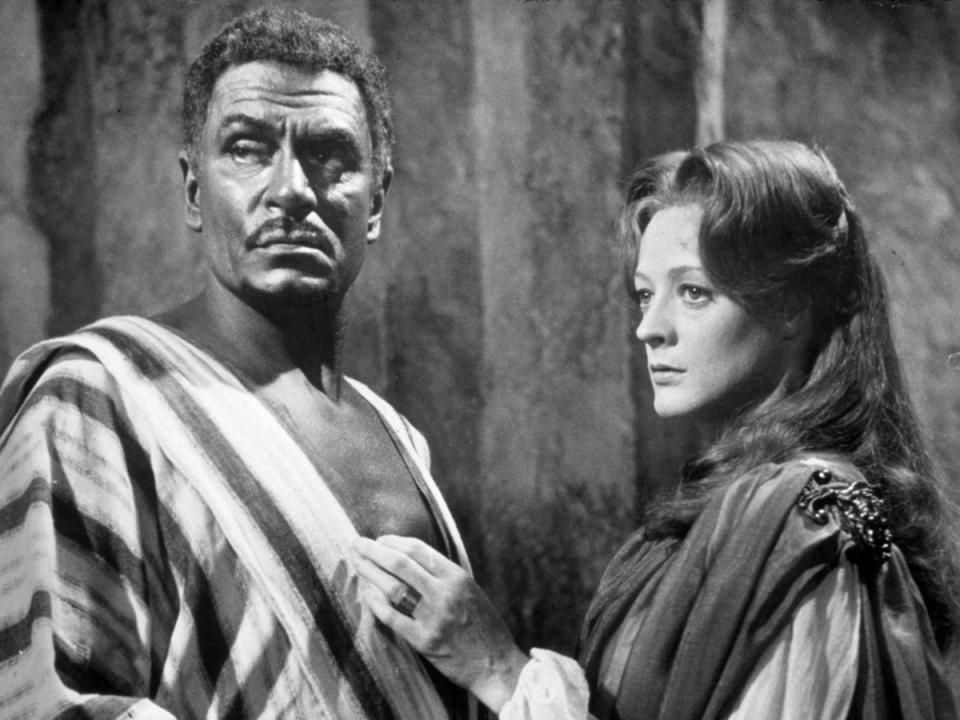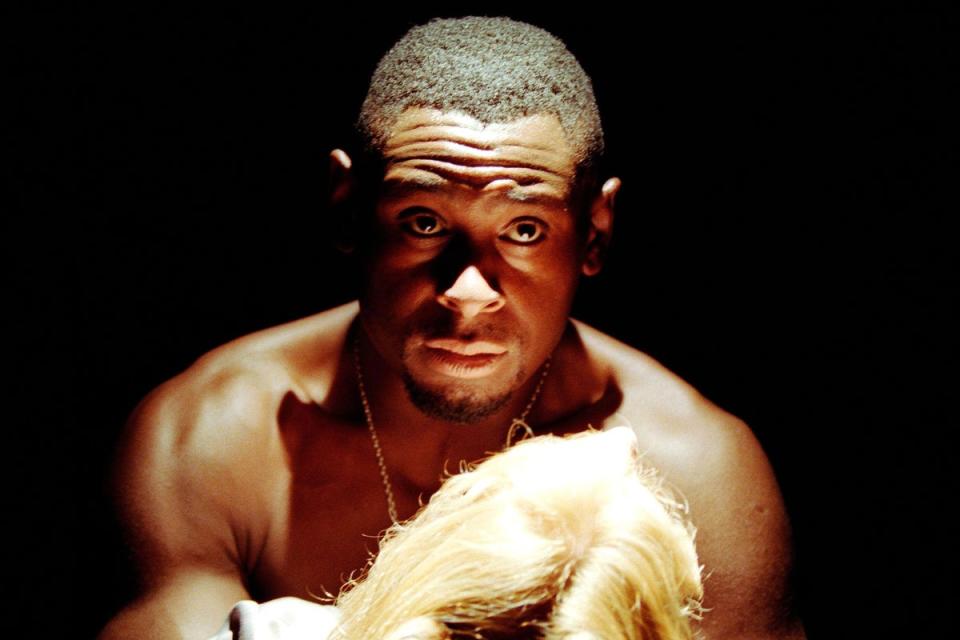David Harewood says white actors should be able to play Othello in Blackface

- Oops!Something went wrong.Please try again later.
- Oops!Something went wrong.Please try again later.
David Harewood has defended the use of Blackface by white actors in productions of William Shakespeare’s Othello.
The actor, 58, spoke about his concerns regarding the impact of identity politics on acting in a new interview with The Guardian.
“We’re at this strange point in the progression where people go, ‘Oh you can’t play that role because you’re not disabled, or you can’t play that because you’re not really from there,’” he told the publication.
Harewood continued: “The name of the game is acting. Yes, we’ve got to be representative, but I do think we have to be careful… That even extends to Othello in Blackface.”
Historically, Othello would see white actors wear Blackface to portray the titular military leader. However, modern productions have widely cast Black actors in the role.
“I say, if you want to black it up, have at it, man. It’d better be f***ing good, or else you’re gonna get laughed off the stage. But knock yourself out!” Harewood added.
“Anybody should be able to do anything.”
Harewood’s comments come amid an ongoing conversation surrounding representation and opportunity in the industry over who is “allowed” to play who.
Last year, Harewood played the notorious white conservative William F Buckley in a well-received production of Best of Enemies.

“I knew the minute I walked on stage, 99 per cent of the audience was thinking: ‘Why is he playing that?’ But by the end of it, everybody was going, F*** me, that worked really well!’” said Harewood.
“Hearing his words coming out of my mouth, many people went, ‘Why am I liking William F Buckley?’”
Earlier this month, Billy Dee Williams similarly said that actors should be able to perform in Blackface.
Echoing Harewood’s opinion, the Star Wars star, 87, said: “If you’re an actor, you should be able to do anything you want to do.”
Williams went on to speak about Laurence Olivier’s controversial use of Blackface in the 1965 film adaptation of Othello directed by Stuart Bruage, and also starring Maggie Smith.
“When [Olivier] did Othello, I fell out laughing,” he said. “He stuck his ass out and walked around with his ass, you know, because Black people are supposed to have big asses.”
Williams said he found Olivier’s portrayal “hysterical”, adding: “I loved it. I love that kind of stuff.”
In recent years, a number of TV series have removed episodes from streaming catalogues over the use of Blackface.
In 2020, NBC pulled four episodes of 30 Rock from streaming services, including two that featured Jane Krakowski’s Jenna character in skin-darkening makeup.

“As we strive to do the work and do better in regards to race in America, we believe that these episodes featuring actors in race-changing makeup are best taken out of circulation,” executive producer Tina Fey wrote in a letter to the platforms that streamed or sold 30 Rock.
“I understand now that ‘intent’ is not a free pass for white people to use these images. I apologise for pain they have caused.”
Also in 2020, Jimmy Kimmel apologised to “those who were genuinely hurt or offended by the makeup I wore or the words I spoke”. The talk show host was referring to unearthed clips in which he used the N-word and impersonated figures such as Snoop Dogg and Oprah Winfrey.
David Walliams and Matt Lucas also issued an apology for their use of Blackface in the sketch show Little Britain, which was removed from BBC iPlayer and Britbox over its racist humour.
“Once again, we want to make it clear that it was wrong and we are very sorry,” tweeted Lucas at the time, expressing their regret about portrayals of “characters of other races”.

